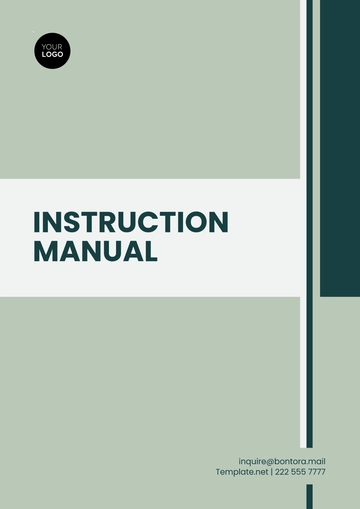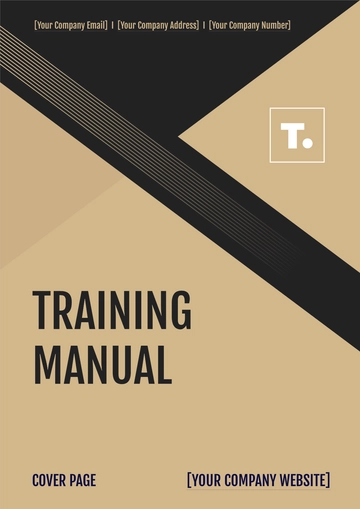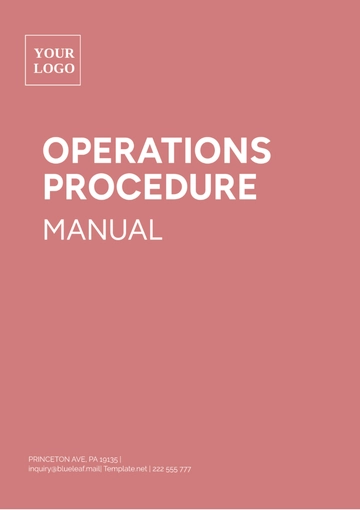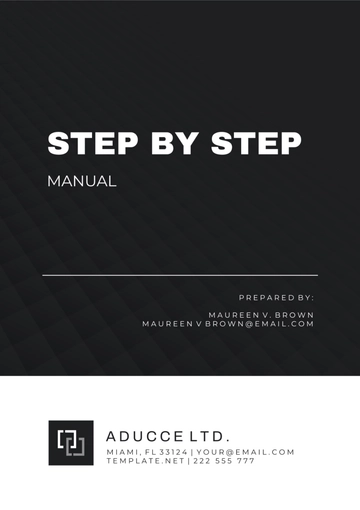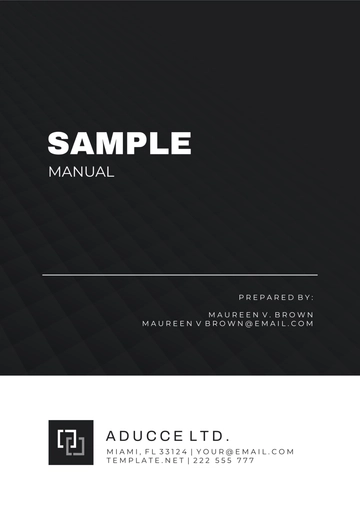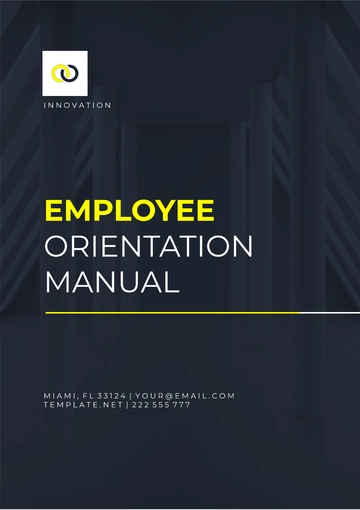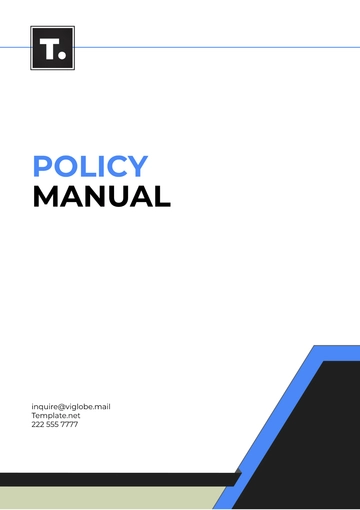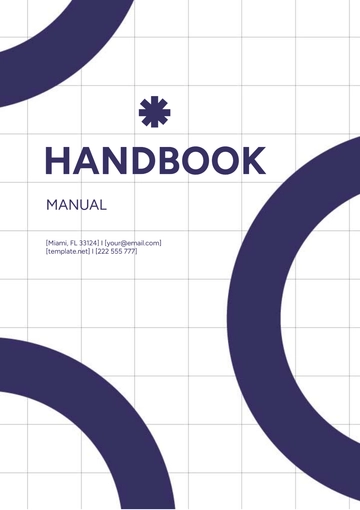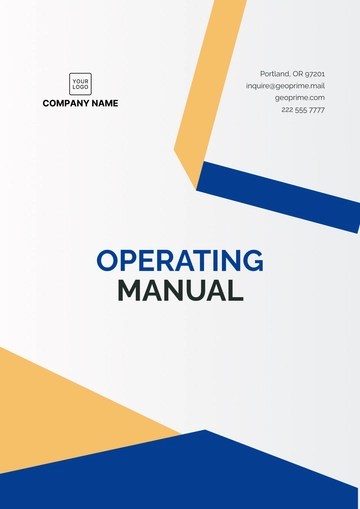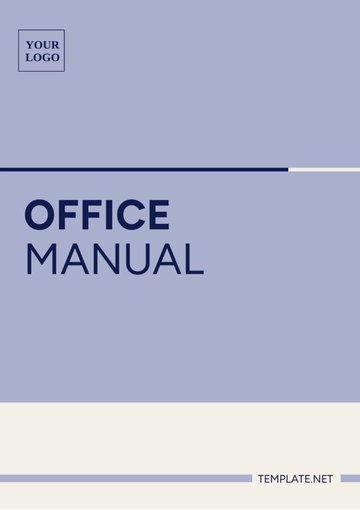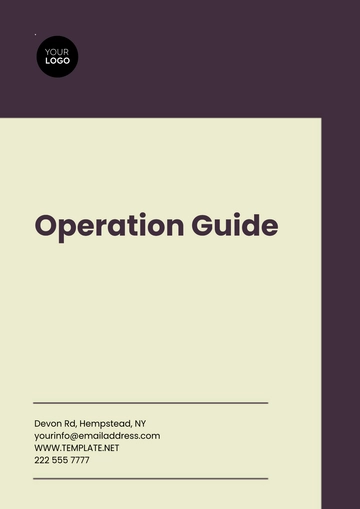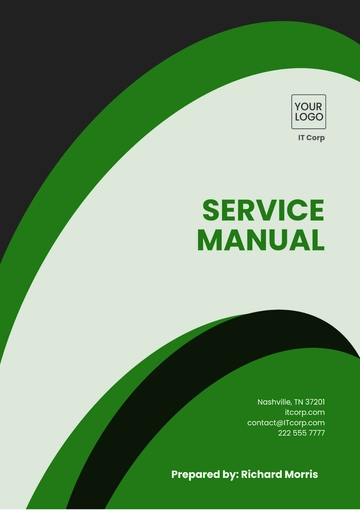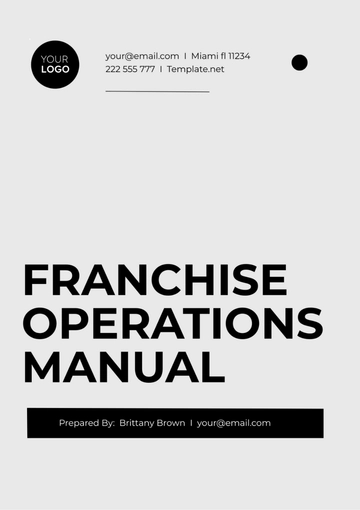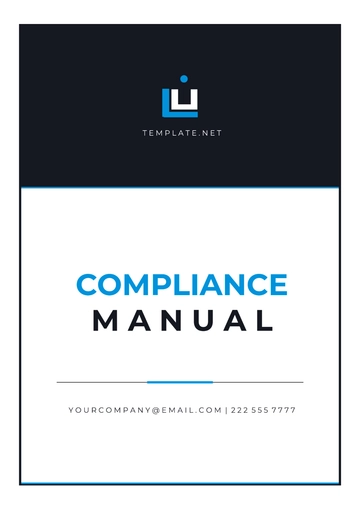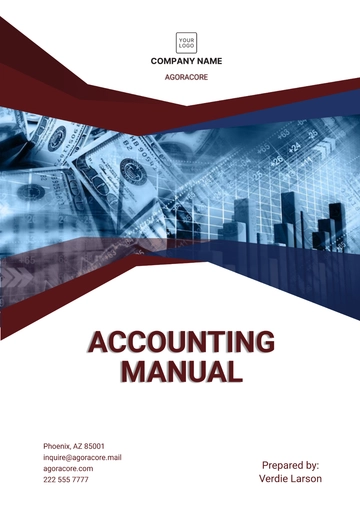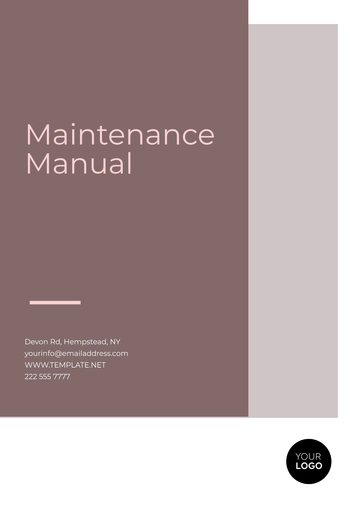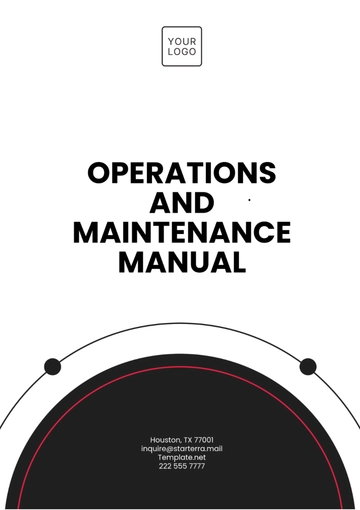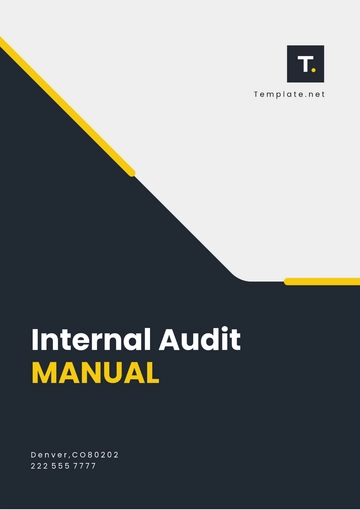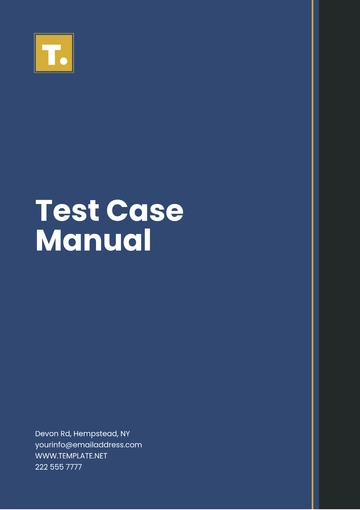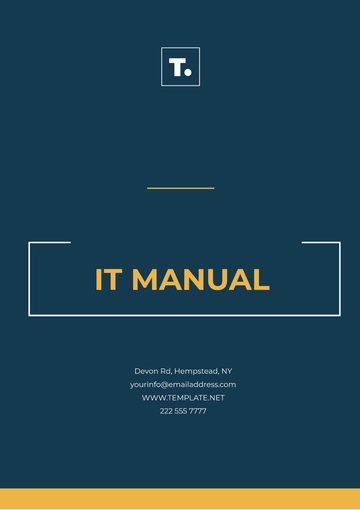Free Financial Services Training Manual
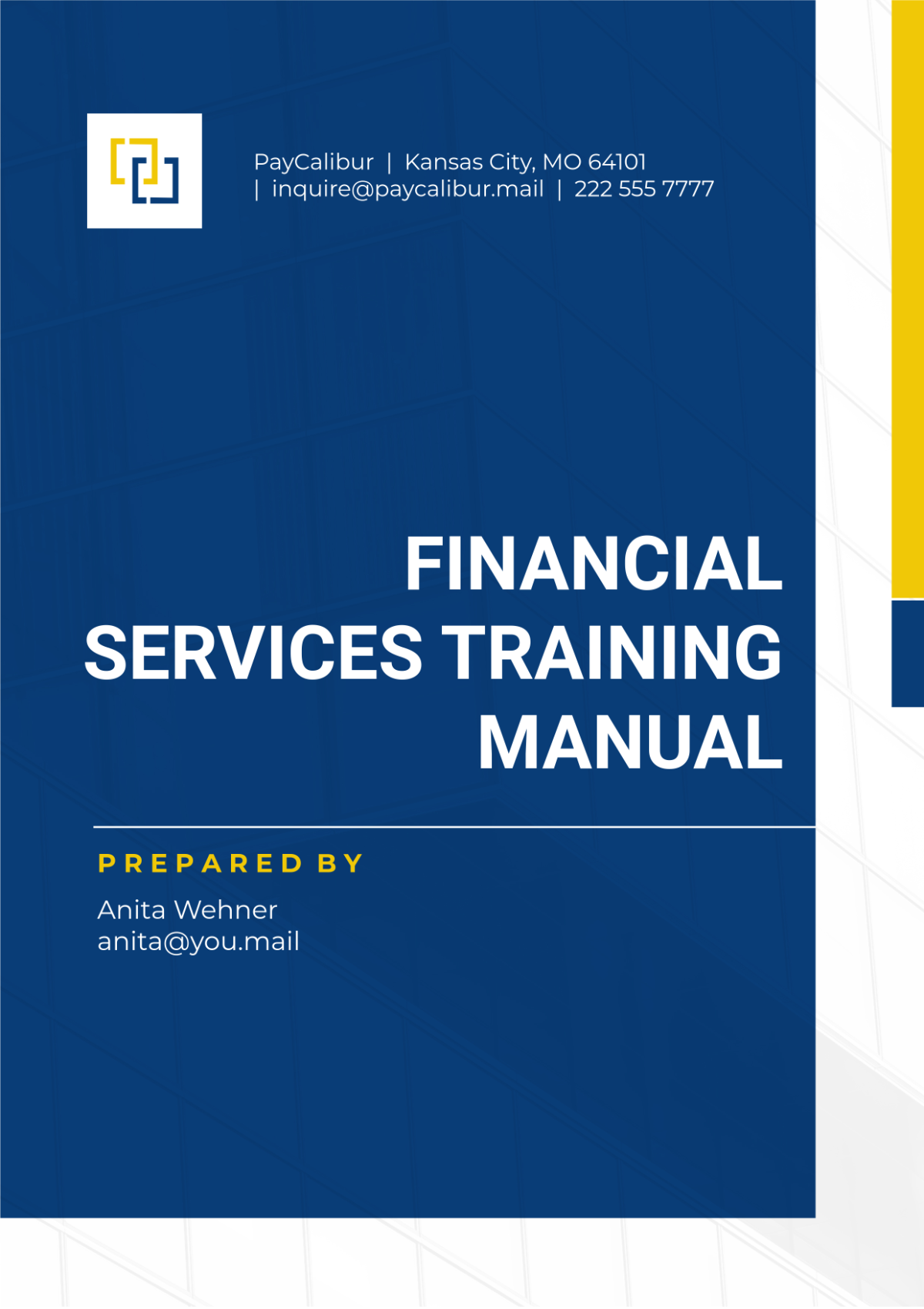
Prepared by: [Your Company Name]
Date: [Date]
I. Introduction
This Financial Services Training Manual provides essential guidance for employees in financial reporting, compliance, and customer service. It ensures staff are equipped with the knowledge to uphold accuracy, integrity, and transparency in all tasks. The manual covers company policies, job roles, procedures, and regulatory requirements, as well as our financial products and services. Designed for both new hires and experienced employees, it serves as a key resource for onboarding and continuous development. By following this manual, employees can ensure compliance and contribute to the company's success in the financial services industry.
II. Company Policies
Our company is committed to maintaining the highest ethical standards in financial reporting, fostering a culture of accountability, transparency, and respect for regulatory frameworks. All employees must adhere to the following key policies:
Integrity and Honesty in All Financial Activities: Employees must ensure that all financial transactions and reporting are conducted with integrity and accuracy. Any intentional misrepresentation or falsification of data is strictly prohibited.
Confidentiality of Financial Data: Financial data, both company and client-related, must be kept confidential at all times. Unauthorized disclosure or sharing of sensitive financial information is a violation of company policy and legal standards.
Compliance with Relevant Laws and Regulations: All employees must ensure that financial reporting adheres to local, national, and international regulations, including but not limited to Sarbanes-Oxley Act (SOX), Financial Industry Regulatory Authority (FINRA) rules, and the guidelines set by the Securities and Exchange Commission (SEC).
Conflict of Interest: Employees must avoid any situations where personal interests could conflict with their professional duties. Any potential conflicts must be disclosed to the compliance officer immediately.
Professional Development: All employees are encouraged to stay updated on changes in financial laws, regulations, and best practices through continuous learning and training.
III. Job Roles and Responsibilities
Employees involved in financial reporting have specific roles and responsibilities, including:
Role | Responsibilities |
|---|---|
Financial Analyst | Analyze financial data and prepare reports |
Compliance Officer | Ensure all financial reporting complies with regulations |
Accountant | Manage accounting records and ensure accuracy |
IV. Procedures and Processes
Effective financial reporting depends on strict adherence to established procedures and processes. These processes ensure the accuracy, reliability, and timeliness of financial data:
Data Collection:
Gather all relevant financial data from authorized internal systems (e.g., ERP, accounting software).
Ensure data is verified and sourced from credible and approved databases.
Data Analysis:
Analyze collected data for any trends, outliers, or discrepancies.
Use financial models and analytical tools to derive insights that help in decision-making.
Report Preparation:
Compile data into clear and concise financial reports according to company standards.
Ensure reports are structured according to compliance regulations (e.g., GAAP or IFRS).
Review and Approval:
All financial reports must undergo a thorough review by the financial analyst before being forwarded to the compliance officer.
The compliance officer must give final approval to ensure all regulatory requirements are met.
Audit Trail Documentation:
Maintain records of all stages of the financial reporting process to provide an audit trail for internal and external auditors.
V. Regulatory Requirements
Adherence to financial regulatory requirements is a fundamental aspect of our operations. Key regulatory requirements include:
Accurate Representation of Financial Position: All financial reports must reflect the true financial position of the company without misrepresentation or omissions.
Timely Submission of Reports: Financial reports must be submitted within the timelines set by regulatory bodies, including quarterly and annual filings (e.g., SEC filings).
Compliance with Accounting Standards: Reports must adhere to established accounting standards such as GAAP or IFRS, depending on the jurisdiction of operation.
Internal Controls: Proper internal controls must be implemented to safeguard assets and ensure the accuracy and reliability of financial reporting.
VI. Products and Services
Understanding the company’s products and services is critical for accurate financial reporting. Our company offers a wide range of financial solutions that need to be factored into reporting:
Investment Management: Managing clients’ portfolios, including stocks, bonds, and alternative investments, with regular performance reporting.
Wealth Advisory: Providing personalized financial advice to high-net-worth individuals and families, involving complex financial planning and estate management.
Insurance Solutions: Offering various types of insurance products, including life insurance, health insurance, and corporate risk management solutions.
Retirement Planning: Providing retirement savings plans, pension fund management, and retirement income strategies tailored to individual and corporate clients.
Corporate Banking: Services such as business loans, cash management, and treasury services for corporations and institutional clients.
VII. Customer Service Standards
In the financial services industry, excellent customer service is critical to maintaining trust and long-term client relationships. All employees must follow these standards:
Respond Promptly to Customer Inquiries: All customer inquiries, especially regarding financial statements or account details, must be answered within 24 hours.
Maintain Transparency in Financial Reporting: Clients must receive clear and transparent reports regarding their financial accounts, portfolios, and investments.
Respect Customer Confidentiality: Employees must uphold strict confidentiality and ensure that sensitive client information is protected at all times.
Personalized Client Interaction: Whenever possible, provide tailored advice and solutions that meet the specific financial goals of each client.
VIII. Training Resources
To foster continuous learning and compliance, the following training resources are made available to all employees:
Online Training Modules: Interactive e-learning courses covering topics like financial compliance, regulatory updates, and advanced financial analysis.
Workshops and Seminars: Periodic sessions led by industry experts on topics such as emerging trends in finance, regulatory changes, and new financial products.
Mentorship Programs: New hires are paired with senior employees to provide hands-on training and guidance through the financial reporting processes.
Quarterly Refresher Courses: Employees must attend mandatory refresher courses on compliance, ethics, and new financial regulations every quarter.
Certification Programs: Sponsorship for employees pursuing certifications such as CPA, CFA, or Certified Compliance Professional (CCP) to enhance their financial expertise and professional credentials.
- 100% Customizable, free editor
- Access 1 Million+ Templates, photo’s & graphics
- Download or share as a template
- Click and replace photos, graphics, text, backgrounds
- Resize, crop, AI write & more
- Access advanced editor
Template.net's Financial Services Training Manual Template is the perfect solution for creating a structured guide to financial service practices. This fully customizable and editable template covers essential topics like compliance, customer relations, and financial product training. Editable in our Ai Editor Tool, you can quickly personalize the manual to fit your company’s standards and procedures. Ideal for organizations focused on maintaining industry best practices, this template ensures consistency in training financial professionals.
